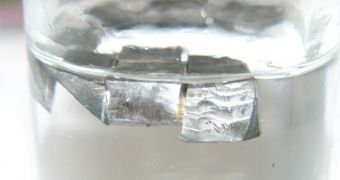In a new study carried out on unsuspecting lab mice, researchers demonstrated that it's possible to use the chemical lithium to delay the onset of Parkinson's disease, as well as a host of other neurodegenerative conditions related to it.
For the research, experts used transgenic mice that were genetically modified to express Parkinson's. When administered lithium, mice in the test group were a lot less likely than counterparts in a control group to develop the disease.
The chemical prevented the accumulation of toxic proteins in the rodents' brains, and also played a role in reducing the type of cells loss that is usually associated with the condition. At this point, lithium therapy is in pre-clinical trials.
What this means is that investigators are now trying to determine the most efficient dosages for the new therapy. At this point, lithium is heavily used to treat other mental illnesses, such as bipolar disorder.
The research is being conducted by experts at the Buck Institute for Research on Aging. They are already initiating Phase IIa clinical studies on using lithium on human subjects in addition to the standard Parkinson's therapy patients are already being administered.
More details of their investigation are published in the latest online issue of the Journal of Neuroscience Research, PsychCentral reports. “This is the first time lithium has been tested in an animal model of PD,” lead author Julie Andersen, PhD, explains.
“The fact that lithium’s safety profile in humans is well understood greatly reduces trial risk and lowers a significant hurdle to getting it into the clinic,” she adds, saying that lithium may protect against Alzheimer’s disease, Huntington’s disease and amyotrophic lateral sclerosis (Lou Gehrig’s disease) too.
“We fed our mice levels of lithium that were at the low end of the therapeutic range. The possibility that lithium could be effective in PD patients at subclinical levels is exciting, because it would avoid many side effects associated at the higher dose range,” Andersen says.
“This finding gives us an opportunity to explore lithium as a recognized therapeutic for PD, in doses that are safe and effective,” the expert adds. When administered in high doses, lithium can affect the kidneys, and caused hyperthyroidism.

 14 DAY TRIAL //
14 DAY TRIAL //